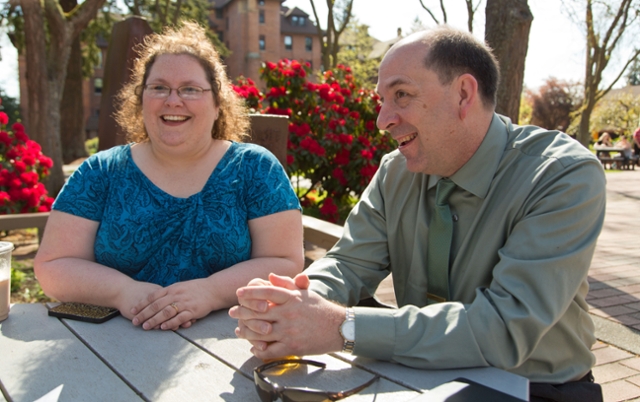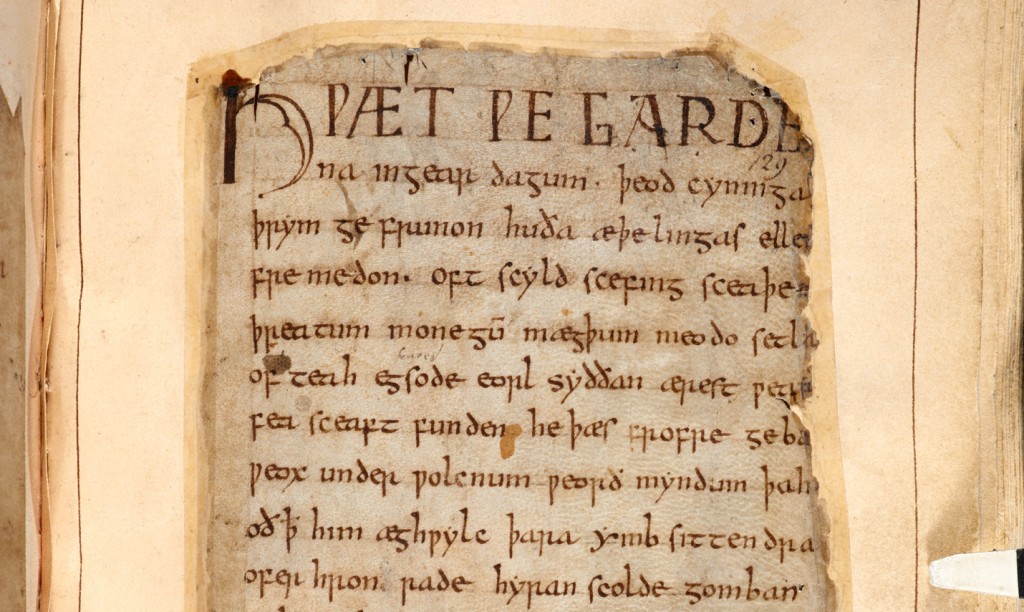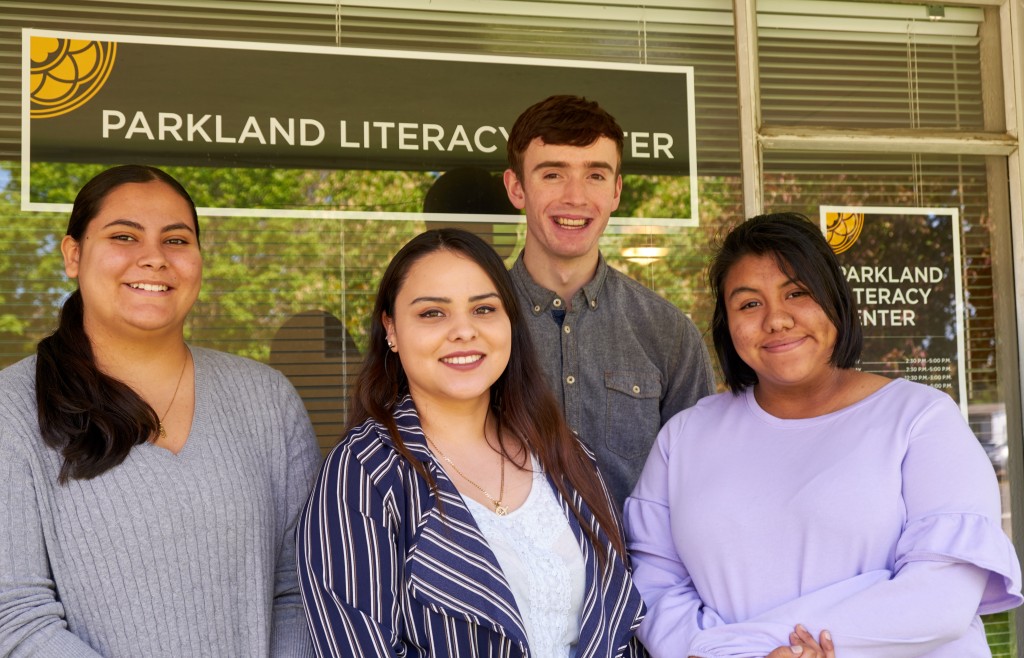Page 134 • (2,271 results in 0.054 seconds)
-
November 3, 2008 Will students take the plunge and vote? It’s nearing that time to change the statement “I Will Vote” to the “I Have Voted.”And several students around campus are making that statement with an exclamation mark, said Lace Smith, program director of Student Involvement and Leadership.“I think across the board there is a lot more excitement and intensity (with this presidential election),” said Geoff Smock, PLU College Republicans’ president. “Who we elect matters for our future
-

him to keep him going. And Mike (Farnum) also kept in contact with him.” Farnum is PLU’s Director of Military Outreach, and he encouraged Kinney and helped keep him on track to graduate, even during his hospital stay. Kinney credits Farnum, as well as PLU’s Yellow Ribbon program, which paid for the tuition and books, for his success in the program and for making his dream of becoming a math teacher come true. And of course, his encouragement from his wife, Jennifer. Kinney, 47, laughs that he
-

explained. Shortly thereafter, Vice President of Student Affairs Joanna Royce-Davis asked Campus Ministry to create an on-campus food pantry. Rude asked Melannie Cunningham, PLU Director of Multicultural Outreach and Engagement, to spearhead the project. Cunningham founded the pantry, originally known as the Blessing Corner, in Spring 2018. Since then, she’s done everything from strategizing around national food insecurity trends to making grocery store runs in order to keep the pantry stocked
-

black kids” and “What are you?” I’m making a conscious choice not to use a word, and I am taking personal responsibility about my actions.” The idea for those last few, Hambrick said, is to hang each graduate’s poster in his or her Tacoma school. The teaching kit introduces the concept into even more schools—and spreads an awareness that’s increasingly important. It’s also important, Hambrick said, that the campaign focuses on personal choice rather than a directive. “It’s not, ‘You don’t do this
-

good and evil. Although Professor Collin Brown believes everything about dead language is important, the main lesson he wants his students to learn from the Dead Languages’ Society is that, “people in the past were not stupid. Human experiences in the past are just as important as the modern human experience.” He adds that he would like students to see how people long ago handled many of life’s challenges. “Like, how do you deal with death? How do you deal with making sense out of a world that is
-

.” Sharlene also highlights the relationships cultivated in the center by recognizing the wonderful tutors that volunteer their time week after week, supporting and empowering students. The Parkland Literacy Center offers a small glimpse into the extraordinary things PLU students are doing in Parkland, but it also reminds us of all the incredible people living in this community. PLU’s mission encourages this kind of engagement, but it is not always easy. These students are making it happen by building a
-

are paid for through a combination of sources; PLU identifies funds annually in its budget to meet specific ADA goals). The ultimate goal: campus-wide ADA compliance. The university is making progress toward that goal. PLU’s recent investment funded several projects — many of which were completed over the summer. About $525,000 paid for modernization of elevators in Tingelstad Hall, Green’s former residence hall. One of the reasons she relocated to South Hall was the unreliability of the elevators
-
. From this land, the palm kernel grew into a tree with sixteen limbs, each of which represented one of the original sixteen Yoruba kingdoms (“Art & Life in Africa: Yoruba”). Nevertheless, the deity that is most relevant in divination is Ifa, the God of Divination. Yoruba people specifically ask Ifa for guidance in making a decision or facing a problem, because they believe that Ifa acts as an intercessor between all of the orisha and humans (Mullen 21-22). During the divination ritual, the diviners
-
wanted to live.” Ultimately, it was decided to kill the baby, a girl, after she was born. Today, at nearly 80 years old, Friedman is still haunted by that decision. “I tell you this so you can understand how inhumane those times were,” he told the audience. “The worst part is I have to take that guilt to my grave.” The Russians liberated the family in March 1944. They returned to Brody in July 1944 to find the once bustling community of 15,000 Jews reduced to less than 100. His family was the only
-
percentage of students studying abroad. When students involved in near-campus or in-state J-term programs are included in this number, the percentage jumps to over 50 percent, Sobania noted. In general, “PLU has made a conscious decision to talk about “study away” rather than “study abroad,” Sobania noted in his report to NAFSA. “We do so because the South Puget Sound is so richly diverse that one does not need to travel more than a few blocks to have a cross-cultural experience.” PLU also offers
Do you have any feedback for us? If so, feel free to use our Feedback Form.


